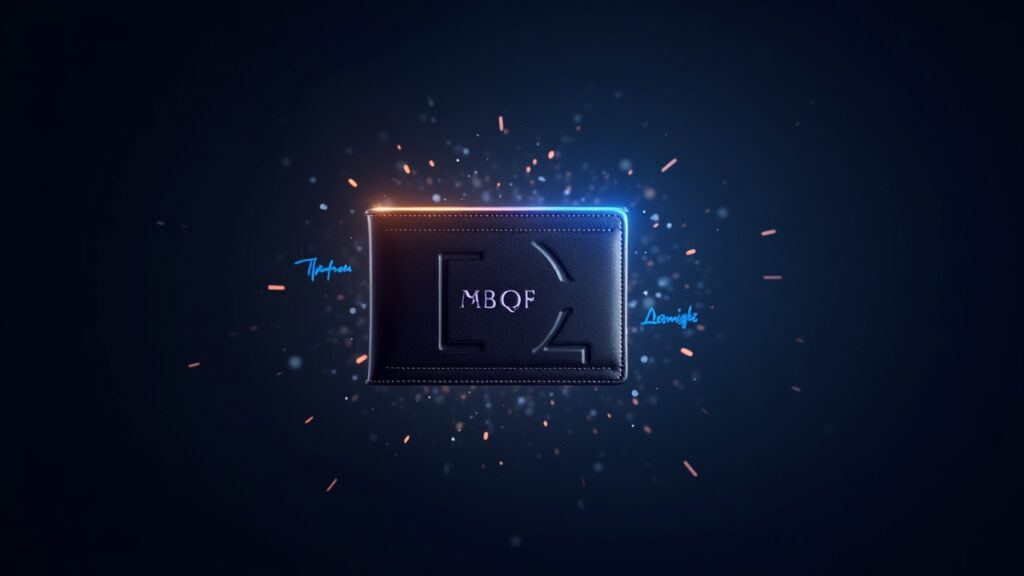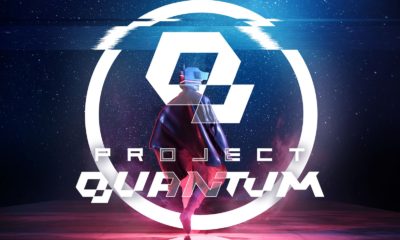Tech
Oracle accelerates its bet on AI and briefly pushes Larry Ellison past Elon Musk in wealth

Oracle experienced a stock surge following announcements and strategic partnerships related to artificial intelligence in 2025. The integrations with NVIDIA and AMD, along with Oracle Database 23ai and AI tools in OCI, boosted the company’s valuation and, at times, temporarily elevated Larry Ellison’s net worth above Elon Musk in real-time rankings.
Announcements and Timeline in 2025
In March and June 2025, Oracle formalized collaborations and product enhancements focused on AI initiatives. The announcements and hardware-software integrations triggered a positive investor response, reflected in the rise of ORCL shares and upward analyst revisions.
Products and Technological Integrations
Oracle incorporated AI capabilities into its database and cloud infrastructure, facilitating enterprise use of AI models and vector searches. The products and services aim to simplify AI workflow implementation and improve efficiency in enterprise environments.
NVIDIA Integration
In March 2025, a joint statement with NVIDIA highlighted the integration of NVIDIA AI Enterprise software, accelerating inference and vector search operations in Oracle Database, combining NVIDIA’s software power with the advanced capabilities of Oracle’s database.
AMD Support and OCI Hardware
In June 2025, Oracle announced AMD support, integrating AMD Instinct MI355X GPUs into Oracle Cloud Infrastructure (OCI). This integration is designed to enhance AI workload performance through a combination of cloud hardware and optimized software.
Oracle Database 23ai and OCI AI Blueprints
Oracle Database 23ai and OCI AI Blueprints are proprietary products that simplify AI workflow and search implementations, forming part of a comprehensive strategy that combines database software, cloud tools, and external hardware support.
Market Impact and Larry Ellison’s Net Worth
The relationship between Oracle’s valuation and Larry Ellison’s net worth was evident when real-time indices showed his wealth temporarily surpassing Elon Musk. Media outlets such as Fortune, Bloomberg, and Forbes reported on how Ellison’s net worth was affected by movements linked to the ORCL stock surge.

Conclusion
The Oracle stock rally and its effect on Ellison’s net worth illustrate how the AI infrastructure race redistributes financial value and technological power. The episode raises practical implications for competition and centralization: in the short term, partnerships enable enterprise deployments and reduce operational costs, but in the medium term, they increase technology dependency risks, driving demand for open and decentralized alternatives to protect data sovereignty.
The post Oracle accelerates its bet on AI and briefly pushes Larry Ellison past Elon Musk in wealth appeared first on The Cryptocurrency Post.
Tech
qLABS takes the lead in quantum security amid growing pressure for crypto companies

The advancement of quantum computing has ceased to be an academic theory to become an imminent threat that companies must face. In this context, qLABS, a foundation specialized in cryptographic infrastructure, has announced the launch of its qONE token and its Quantum-Sig wallet to protect digital assets.
This initiative arises at a critical moment where elliptic curve signature systems, essential for the security of networks like Ethereum or Solana, could become vulnerable to powerful quantum machines. However, qLABS proposes an immediate resistance layer, avoiding the wait for slow structural updates in the main blockchains.
Technical innovation to neutralize the risk of future decryption
Unlike other projects that seek to rebuild networks from scratch, qLABS’ proposal is based on implementing a post-quantum security layer over already existing infrastructures. Its system uses a dual-signature technology, which requires both the classical signature and a second signature resistant to quantum attacks to validate any transaction.
This approach seeks to mitigate the danger known as “harvest now, decrypt later,” a strategy where malicious actors collect data today to compromise private keys when quantum technology matures. Furthermore, the qONE token presale, scheduled for February 5, will mark a milestone in the commercialization of services of advanced security.
How do the giants of the sector plan to respond to this technological challenge?
While qLABS deploys tangible solutions, other large-scale companies like Coinbase have opted to strengthen their research frameworks through independent advisory committees. Despite these corporate efforts, the agility of quantum-native protocols is raising the protection standards demanded by global investors and developers.
On the other hand, networks like Aptos have already proposed signature schemes based on NIST standards, demonstrating that the transition toward post-quantum cryptography is a strategic priority. Thus, the market observes how competition shifts from scalability toward long-term resilience against disruptive computational capabilities.
The adoption of these tools will define the survival of assets in the next decade, especially as estimates for the arrival of “Q-Day” shorten significantly. Therefore, the cryptocurrency ecosystem is in a preventive migration phase, where success will depend on implementing robust defenses before the threat becomes an inevitable technical reality.
The post qLABS takes the lead in quantum security amid growing pressure for crypto companies appeared first on The Cryptocurrency Post.
Tech
Decentralized GPU Computing Networks Dominate AI Inference Within the 2026 Market

The artificial intelligence landscape has undergone a profound structural transformation during the beginning of this year, shifting the focus from massive training to the efficient execution of models. While hyperscale data centers maintain their hegemony in frontier model development, decentralized GPU computing has established itself as the essential layer for inference and everyday production tasks.
According to Mitch Liu, co-founder of Theta Network, the optimization of open-source models allows them to run with astonishing efficiency on consumer-grade hardware. This trend has allowed 70% of global processing demand to shift toward inference and autonomous agents, transforming compute into a scalable and continuous utility service for companies of all sizes and industries.
A Paradigm Shift: From Skyscraper Construction to Distributed Utility
The industrial analogy is clear: if training a frontier model is like building a skyscraper that requires millimeter-level coordination, inference is more akin to the distribution of basic services. In this context, decentralized networks take advantage of variable latency and geographical dispersion, offering a low-cost alternative to the monopolies of traditional cloud providers.
On the other hand, hyperscale infrastructure remains indispensable for large-scale projects, such as the training of Llama 4 or GPT-5, which demand clusters of hundreds of thousands of Nvidia cards. However, for blockchain and consumer applications, the ability to process data close to the end-user represents an insurmountable competitive advantage in terms of response speed and efficiency.
Furthermore, the flexibility of these networks allows for handling elastic demand waves without the rigid contracts of tech giants. By using idle gaming-grade hardware, decentralized platforms manage to drastically reduce the operating costs of AI startups, allowing innovation to not depend exclusively on multi-million dollar budgets or privileged access to hardware supplies.
Why Is Inference the New Battlefield for Distributed Networks?
Unlike training, which requires constant synchronization between machines, inference allows workloads to be split and executed independently. This technical feature is what allows decentralized GPU computing to shine, as the global dispersion of nodes minimizes network hops and reduces latency for users in remote or underserved regions.
In addition, sectors such as drug discovery, video generation, and large-scale data processing find this model to be an ideal solution. In this way, tasks requiring open web access and parallel processing can be executed without proxy restrictions, facilitating a much more democratic and accessible development ecosystem for the global community of researchers and developers.
Looking ahead, the coexistence between centralized data centers and distributed networks is expected to normalize under a hybrid model. The success of this transition will depend on the networks’ ability to maintain compute integrity, ensuring that decentralization does not compromise the accuracy of the results generated by today’s most advanced artificial intelligence models.
The post Decentralized GPU Computing Networks Dominate AI Inference Within the 2026 Market appeared first on The Cryptocurrency Post.
Crypto Currency
TronBank Positions Itself as a Yield-Focused DeFi Hub on TRON

TronBank is emerging as a growing decentralized finance platform within the TRON ecosystem, aiming to combine on-chain banking functions with yield generation tools. As activity across TRON-based DeFi continues to expand, TronBank is positioning itself as an access layer for users seeking passive income, capital efficiency, and simplified interaction with decentralized financial products.
Built on the TRON blockchain, TronBank focuses on speed, low transaction costs, and accessibility—core attributes that have helped TRON remain a popular network for retail-focused DeFi use cases. The platform’s design reflects a broader trend within DeFi toward protocol-level financial services that resemble traditional banking, while remaining non-custodial and transparent.
TronBank’s Role in the TRON DeFi Ecosystem
At its core, TronBank functions as a DeFi banking protocol, offering users tools to deploy capital into yield-generating strategies native to the TRON network. Rather than positioning itself as a single-purpose application, TronBank aims to serve as an integrated financial layer where users can manage assets, earn yield, and interact with DeFi products through a unified interface.
The protocol benefits from TRON’s infrastructure advantages, including fast block times and minimal fees, which reduce friction for frequent on-chain interactions. This makes TronBank particularly suited for users who prefer active yield strategies without the high costs often associated with Ethereum-based DeFi platforms.
Yield Generation and Token Utility
TronBank’s ecosystem revolves around its native token, which plays a central role in governance, incentives, and platform utility. Token holders may benefit from protocol-driven rewards, participation in ecosystem decisions, and potential fee-sharing mechanisms, depending on the platform’s evolving economic model.
Yield opportunities on TronBank are structured to appeal to both conservative users seeking steady returns and more active participants pursuing higher-yield strategies. By focusing on sustainability rather than short-term incentives, the platform appears to be aligning itself with longer-term DeFi participation rather than speculative farming cycles.
This approach reflects a broader shift in DeFi, where protocols are increasingly emphasizing capital efficiency, risk awareness, and predictable returns over aggressive emissions.
Security, Transparency, and User Focus
Security remains a critical factor for DeFi adoption, particularly for platforms positioning themselves as financial infrastructure. TronBank emphasizes on-chain transparency and non-custodial asset control, allowing users to retain ownership of funds while interacting with smart contracts.
While DeFi platforms across the industry continue to face scrutiny over risk management, TronBank’s positioning within the TRON ecosystem may benefit from the network’s established user base and stable transaction environment. As always, users are expected to evaluate smart contract risk independently when engaging with decentralized protocols.
Why TronBank Is Gaining Attention
TronBank’s growing visibility reflects increasing demand for DeFi products tailored to high-throughput, low-cost blockchains. As capital continues to flow into alternative Layer 1 ecosystems, platforms like TronBank stand to benefit from users seeking efficiency without sacrificing functionality.
By framing itself as a decentralized banking layer rather than a single-feature DeFi application, TronBank is tapping into a narrative that resonates with both retail users and yield-focused participants. If adoption continues, the platform could become a notable component of TRON’s broader DeFi landscape.
As decentralized finance matures, protocols that combine usability, cost efficiency, and sustainable incentives are likely to define the next phase of growth. TronBank’s development trajectory suggests it is aiming to be part of that evolution.
-

 Crypto4 years ago
Crypto4 years agoCardalonia Aiming To Become The Biggest Metaverse Project On Cardano
-

 Press Release5 years ago
Press Release5 years agoP2P2C BREAKTHROUGH CREATES A CONNECTION BETWEEN ETM TOKEN AND THE SUPER PROFITABLE MARKET
-

 Blockchain6 years ago
Blockchain6 years agoWOM Protocol partners with CoinPayments, the world’s largest cryptocurrency payments processor
-

 Press Release5 years ago
Press Release5 years agoETHERSMART DEVELOPER’S VISION MADE FINTECH COMPANY BECOME DUBAI’S TOP DIGITAL BANK
-

 Press Release5 years ago
Press Release5 years agoProject Quantum – Decentralised AAA Gaming
-

 Blockchain6 years ago
Blockchain6 years agoWOM Protocol Recommended by Premier Crypto Analyst as only full featured project for August
-

 Press Release5 years ago
Press Release5 years agoETHERSMART DEVELOPER’S VISION MADE FINTECH COMPANY BECOME DUBAI’S TOP DIGITAL BANK
-

 Blockchain6 years ago
Blockchain6 years ago1.5 Times More Bitcoin is purchased by Grayscale Than Daily Mined Coins












